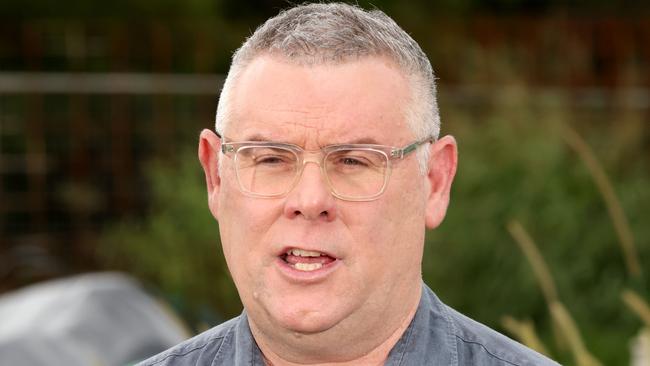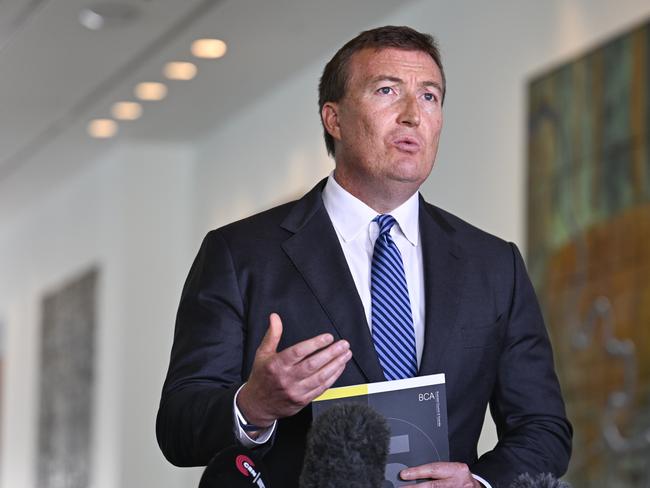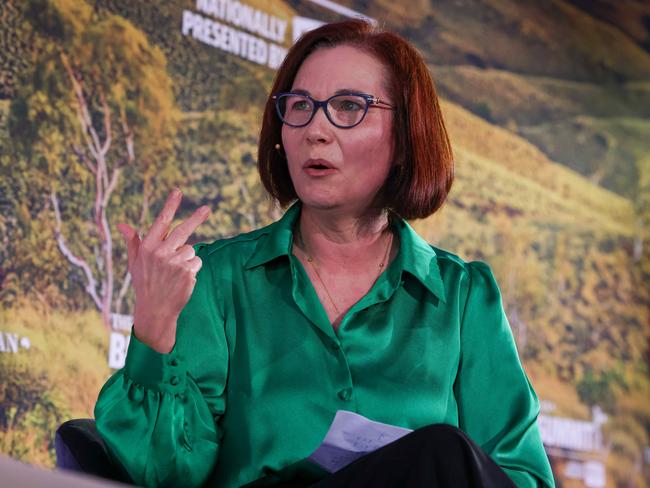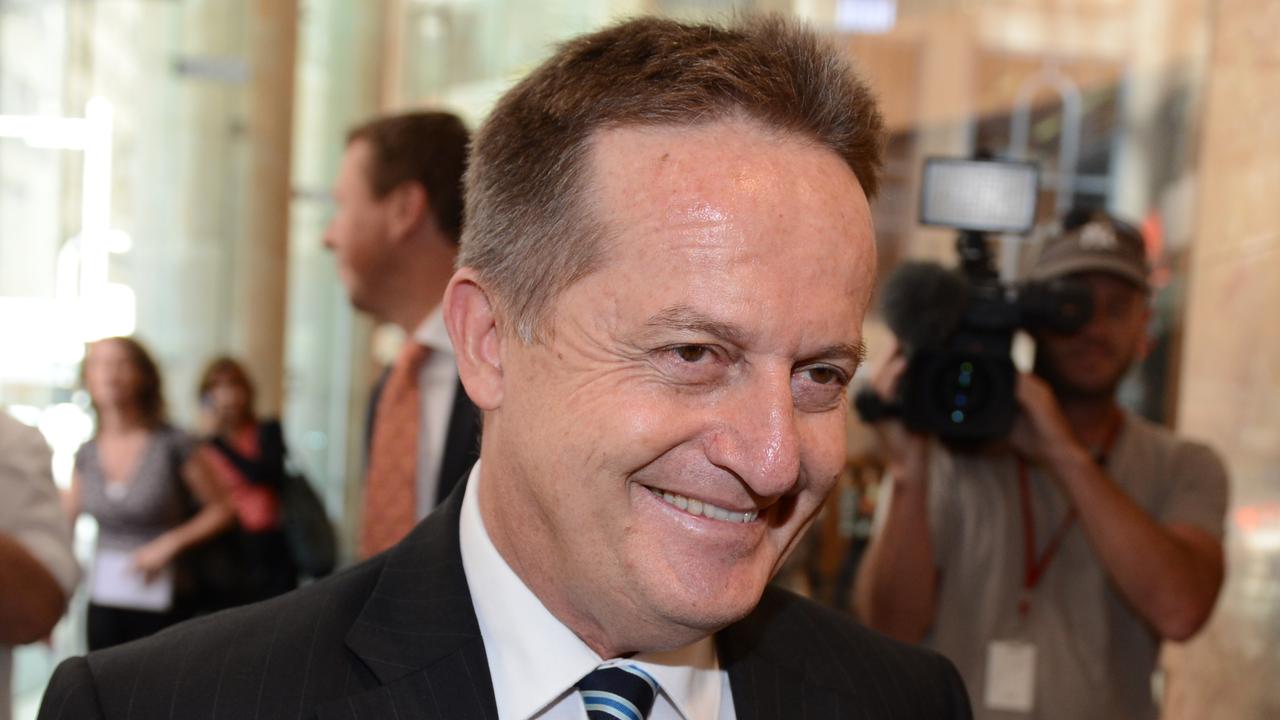Big business escalates war with Labor on IR
Big business has launched a scathing attack on a review that backed the Albanese government’s workplace reforms, arguing the process was not independent but a ‘political charade’ that was ‘economically dangerous’.

Big business has launched a scathing attack on a review that backed the Albanese government’s workplace reforms, arguing the process was not independent but a “political charade” that was “economically dangerous”.
In a pre-election assault on Labor’s industrial relations agenda, the Business Council of Australia and the Minerals Council of Australia have accused Anthony Albanese of walking away from his pre-election pledge to improve productivity.
In a sign of growing tensions between Labor and corporate Australia, Workplace Relations Minister Murray Watt hit back by accusing big business of benefiting from “10 years of Coalition wage suppression”.
“It’s hardly surprising that big business … are unhappy that Labor’s workplace laws are getting wages moving again,” Senator Watt said.
“Sadly for big business, the facts don’t back them up: under Labor, jobs and wages are up and inflation, the gender pay gap and industrial action are down.
“It’s clear that a Peter Dutton-led government would team up with big business to cut wages and job security, just like they did last time they were in power.”
The business groups are scathing of a draft report released by an “independent” panel reviewing the impact of the first tranche of the government’s workplace reforms, including multi-employer bargaining.
The government agreed to the review under a deal with the crossbench to pass the legislation.
The review panellists, industrial relations expert Mark Bray and economics professor Alison Preston, in a draft report released this month, found the legislation was “achieving the Australian government’s intent, operating appropriately and effectively, and with minimal unintended consequences”.
While conceding it was too early to tell exactly what impact the new laws would have, the review found the early signs showed collective bargaining was increasing and wages were improving.

BCA chief executive Bran Black said the report was “not worth the paper it’s written on because it fails to address the impact of these onerous workplace laws on economic growth and Australia’s lagging productivity”.
“This alarming omission comes at a time when Australians have seen seven quarters of real per capita decline, driven by low productivity, with business investment close to three-decade lows as a share of GDP,” Mr Black said.
“Back in 2022, the government stated that productivity would be central to its workplace changes and this is clearly not the case given the flawed approach of this report.”
Mr Black said the flawed report used “partisan and union-backed judgments, and a lack of meaningful consultation with business”.
“At a time when red tape and regulation is suffocating businesses, the report preferences academic theory over real-world business experiences,” he said.
“The report fails to deal with the anti-competitive impacts of multi-employer bargaining, which forces different businesses and employees together in favour of a union-driven approach.”
The BCA’s submission said the report was “economically dangerous”.
“Its findings risk compounding and further exacerbating the reduction in Australians’ living standards,” the submission said.

MCA chief executive Tania Constable accused the government of being deceitful in claiming it was an independent review.
“This is not independent analysis. It is political partisanship,” Ms Constable said.
“The draft report explicitly endorses the Labor government’s push to radically change the industrial relations system and deliberately ignores the negative impacts on business and the wider economy. It even suggests that the government should go even further.
“It says nothing about the government’s broken promises in relation to multi-employer bargaining – which it said it would not introduce.
“Unsurprisingly, the draft report has been strongly endorsed at a political level by unions and the government
“This is another political charade – an attempt to deceive the public into thinking the government was genuinely seeking independent advice and evaluating its policies with an open mind. It was doing neither.”




To join the conversation, please log in. Don't have an account? Register
Join the conversation, you are commenting as Logout